Four members of the Friends of the Global Fund Japan (FGFJ) Diet Task Force, which is composed of members of all major political parties and is co-chaired by Ichiro Aisawa and Motohisa Furukawa, visited Indonesia and Timor-Leste from September 5–11. The trip provided an opportunity for the participants to see first-hand how Japan’s support for the Global Fund is making an impact in the field and to grasp the challenges that government officials and communities continue to face. They were also able to explore new opportunities for Japan’s bilateral assistance to coordinate with the work of the Global Fund. In both countries, the delegation received words of gratitude for Japan’s support and the expectation for Japan to strengthen its leadership as the sole major Global Fund donor in Asia.
Indonesia (September 5–7)
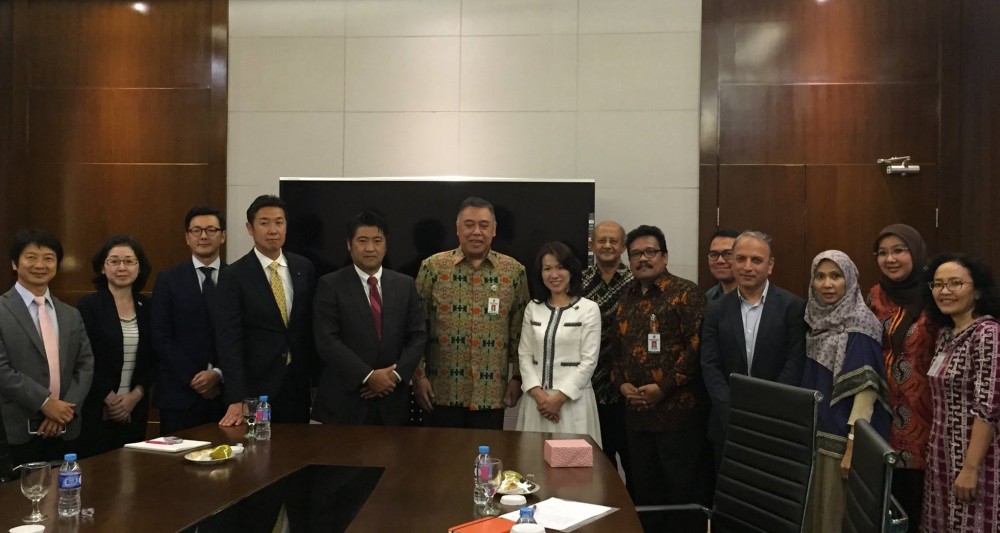
Indonesia is one of the countries where tuberculosis (TB) is most prevalent, with the second highest incidence of TB in the world. Of particular concern is the spread of Multidrug-Resistant Tuberculosis (MDR-TB), as the percentage of patients receiving treatment is relatively low when compared with neighboring countries.
The delegation visited Persahabatan Hospital, an important clinical site for TB treatment, and was briefed by hospital staff. While the medication used to treat MDR-TB is offered free of charge and the hospital is equipped with appropriate equipment, the most serious challenge, which, according to hospital staff, is identifying and diagnosing patients with MDR-TB and keeping them on treatment, remains. At this hospital, 928 patients have started treatment in the past 5 years. However, it was reported that only two-thirds completed the treatment regimen and less than half of them were cured. The hospital works closely with community groups, which are made up of former TB patients, to detect TB patients, bring them to health clinics, and provide support throughout the treatment.
The delegation also had the chance to speak with a few young people from the community groups. They learned that addressing the supply side alone—i.e., access to medications and healthcare workers is not enough. The demand side, or in other words the number of TB patients taking the treatment, must be addressed is well. That is why the work of the community groups is so vital.

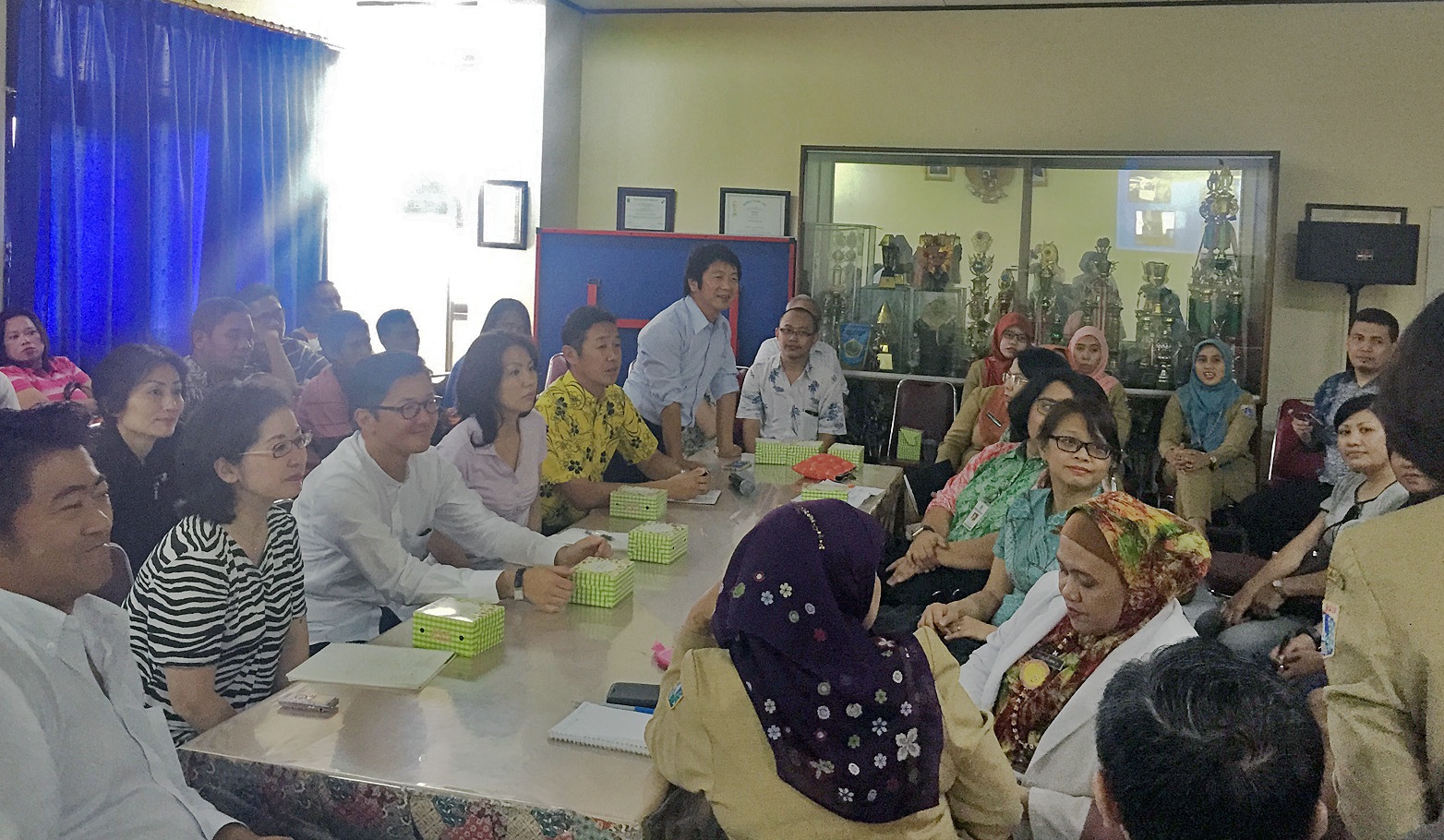
Additionally, the Diet members had candid discussions on challenges that Indonesia faces: the government’s dilemma between the necessity to reach out to key population in HIV intervention—i.e., sex workers, MSM, transgender people, and injected drug users—and the deep-rooted hostility toward such populations among the majority of Indonesians due to traditional and religious values; the difficulty in constructing an adequate supply system for necessary medical supplies within the physical limitations of an island nation; the lack of healthcare workers in rural areas; and the efforts to achieve universal health coverage (UHC) by 2019.
Timor-Leste (September 8–10)
In Timor-Leste, which became the first country to secure its independence in the 21st century, malaria was once one of the leading causes of death. In the last 10 years, with financial support from the Global Fund and technical assistance from the World Health Organization (WHO), cases of malaria have decreased dramatically, moving the country closer to the pre-elimination phase. Being an island nation perhaps has been advantageous in this regard, but this result is largely credited to aggressive efforts by the government. Measures include training of healthcare workers, mass distribution of long-lasting insecticidal nets, improving diagnostic accuracy, surveillance and outbreak management, and campaigns raising general awareness.

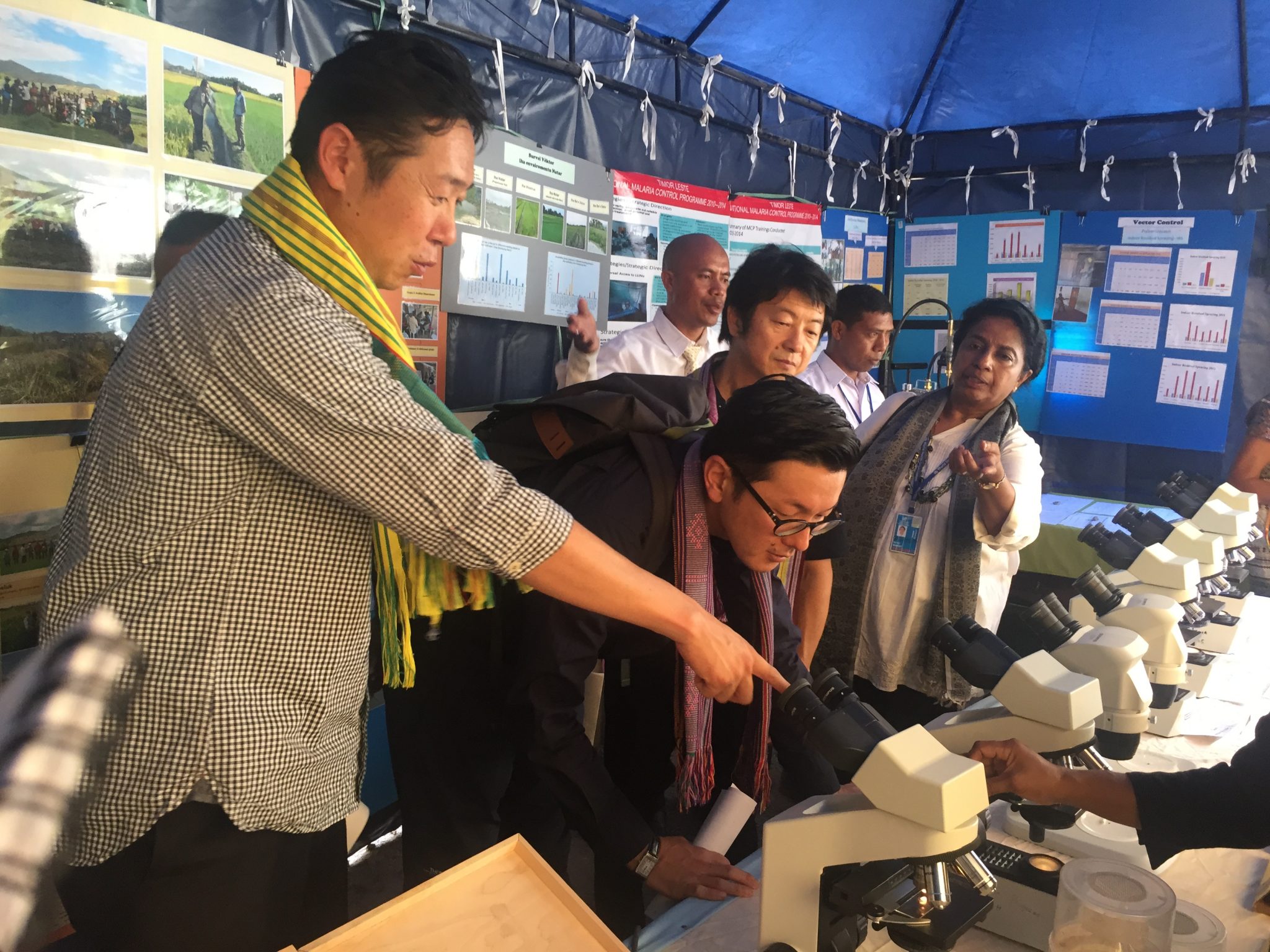
At Hera, a small village located outside of Dili, the delegation saw how indoor residual spraying and mosquito netting are being used and how the results are being monitored.
Unfortunately, Timor-Leste suffers from the highest rate of TB incidence among Southeast Asian countries. It was reported that while accurate data on the burden of the disease is not available, the rate of detection is very low. The delegation saw the work of the Bairo Pite Clinic, a comprehensive community healthcare service center run by an Australian NGO. While there, they talked to TB and AIDS patients, as well as community workers. Unlike in Indonesia, where the discussions on HIV and AIDS were relatively open and frank, the diseases are still a taboo subject in Timor-Leste; people living with HIV face strong discrimination and a range of challenges remain.
With support from the Japanese Embassy, the delegation had an opportunity to pay a courtesy call on Prime Minister Dr. Rui Maria de Araújo, as well as the Minister of Health, Dr. Maria do Ceu Sarmento Pina da Costa, the Second Vice Chairman of the National Parliament, Mr. Duarte Nunes, and other lawmakers and government officials.
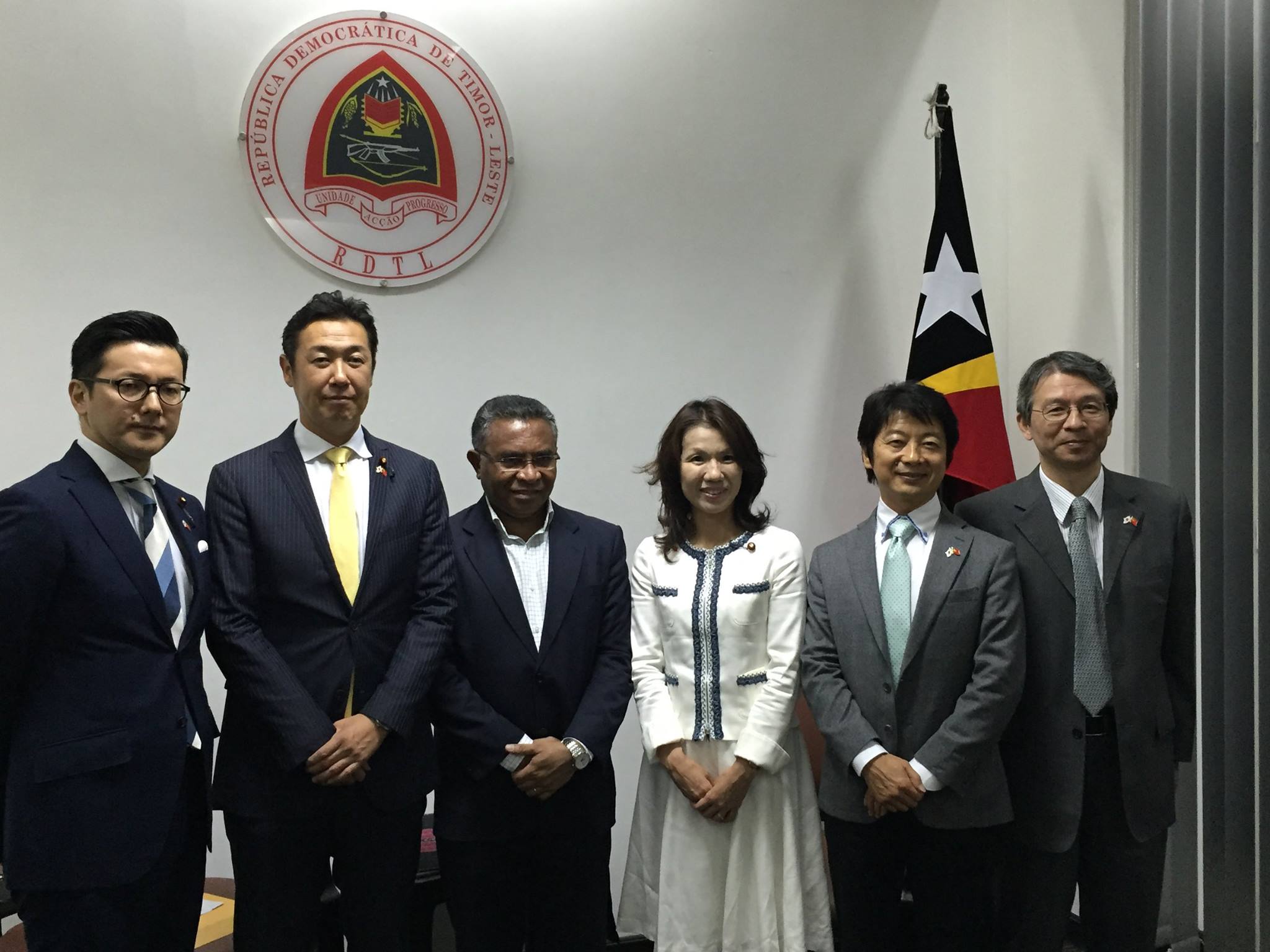
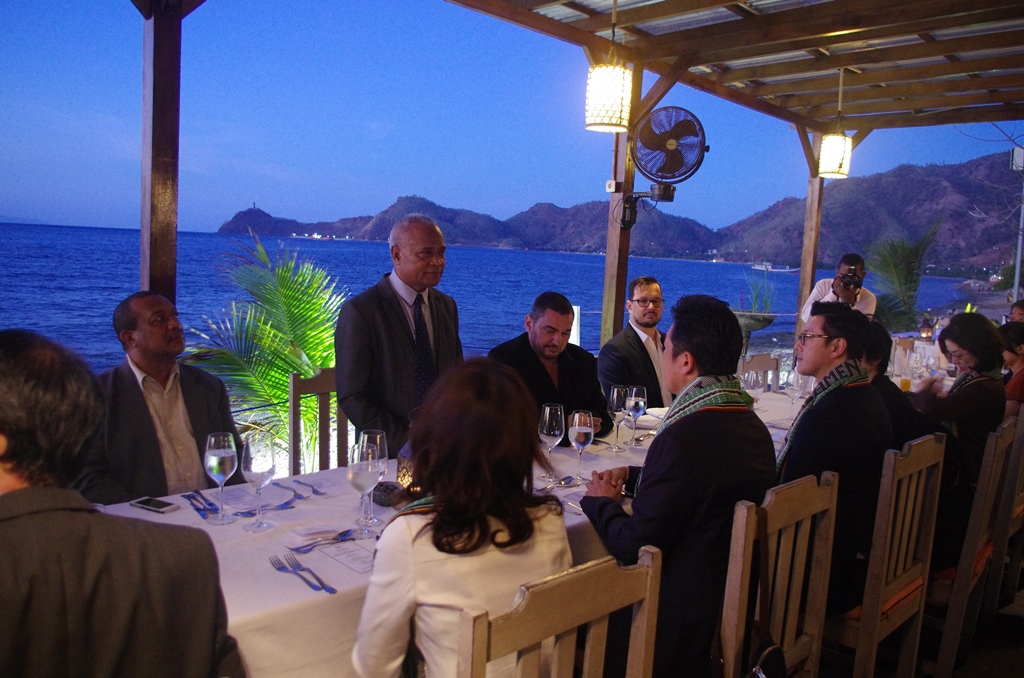
Prime Minister Araújo talked about Japan’s role in hosting the first donors meeting for Timor-Leste in 1999, after the chaotic national referendum on independence. He also thanked Japan for its role as a critical development partner. He noted that one of the most notable social improvements in the last 14 years has been the dramatic decline of malaria, and he again expressed gratitude for Japan’s support through the Global Fund to Fight AIDS, Tuberculosis and Malaria. Prime Minister Araújo said that his country is a great testament to the impact of the Global Fund’s support, an achievement he is proud of.
On behalf of the delegation, Hitoshi Kikawada, a member of the House of Representatives, said that he applauds Timor-Leste for its progress in social development and government stabilization, and for the outstanding results it has achieved through the Global Fund in reducing the number of cases of malaria. He concluded that Japan is ready to continue its contributions to the efforts of addressing infectious diseases in Asia, and, building on this trip, to strengthen the collaborative partnership between the two countries.
During the one-week trip, the members of the FGFJ Diet Task Force learned that the mechanism of the Global Fund is having a significant impact in both Indonesia and Timor-Leste. At the same time, the threat of infectious disease is still high—impeding social development and presenting risks to Japan in the form of MDR-TB and other challenges.
List of participants
Members of the Diet Task Force
- Seiji Kihara, Member of the House of Representatives (Liberal Democratic Party)*
- Hitoshi Kikawada, Member of the House of Representatives (Liberal Democratic Party)
- Mayuko Toyota, Member of the House of Representatives (Liberal Democratic Party)
- Susumu Hamamura, Member of the House of Representatives (New Komeito)
The Global Fund
- Osamu Kunii, Director of Strategic Investments and Impact Division
- Makiko Takayama, Specialist, Donor Government Department, External Relations Division
Friends of the Global Fund, Japan (FGFJ)/Japan Center for International Exchange (JCIE)
- Satoko Itoh, Managing Director and Chief Program Officer, Japan Center for International Exchange (JCIE); Assistant Director, FGFJ
- Xiao Ying Leong, Program Officer, FGFJ/JCIE
- Mari Hasebe, Interpreter
*only Indonesia
